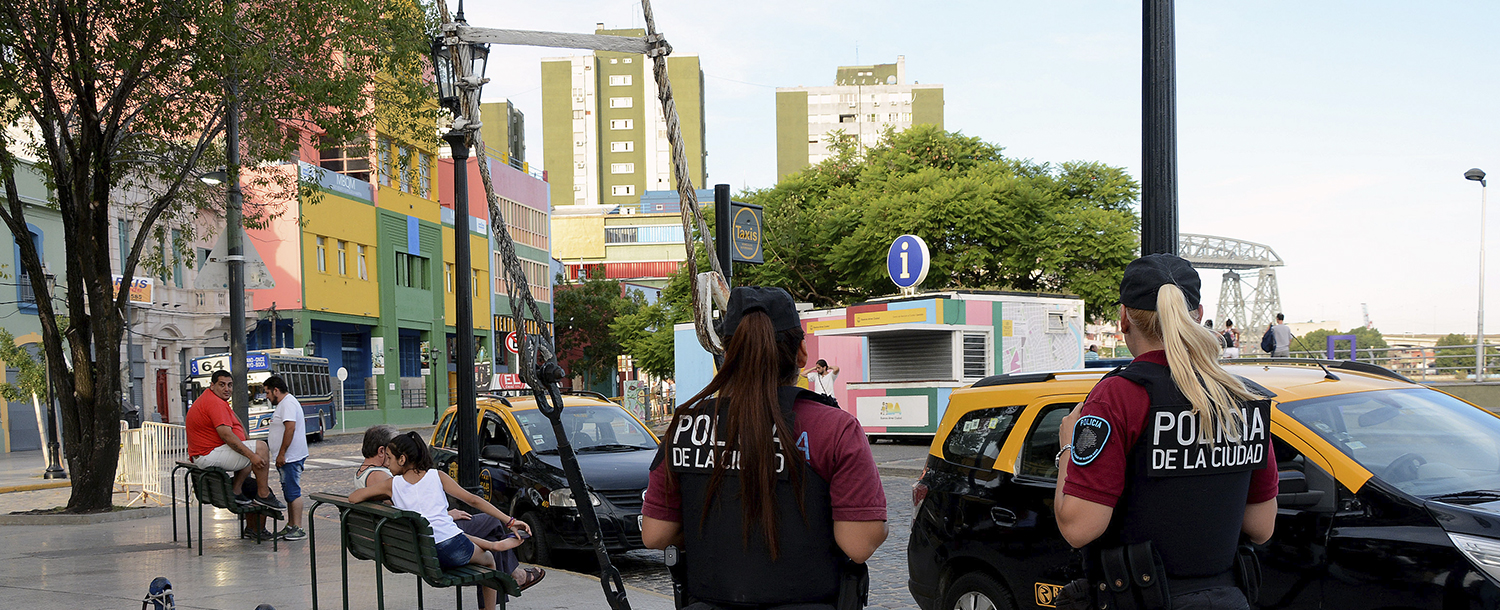Security
Buenos Aires is a safe city, but like with any large metropolis, there are some precautions to be taken. For example, it is highly convenient not to leave bags or hand bags hanging on chairs in public spaces, as well as not to walk at night in poorly-lit streets.
If you have any question, enquiry or report, the city offers two public services that will be happy to help you: the Tourist Ombudsman (Defensoría del Turista) (+5411) 5295 6906 and the Tourist Police (Comisaría del Turista).
Also, you may personally go to any of their eight centers. The headquarters are in Av. Paseo Colón 484, in Monserrat neighborhood. Opening times are 10 a.m. to 7 p.m., Monday to Friday. Email: turistacentral@defensoria.org.ar
Tourist Police
The Tourist Police is a special body which ensures the safety and integrity of national or foreign tourists visiting Buenos Aires.
One of its main features is that police officers are highly qualified, trained in interpersonal relations and prepared in different languages (English, French, Italian, Japanese and Portuguese), which allows them to assist the tourists who are enjoying the main attractions of the City of Buenos Aires.
If needed, call (+54 9 11) 5050 3293 / 9260 or send an email to serv.turista@gmail.com
Sex tourism
Sex tourism, people trafficking and sexual exploitation are severely punished in Argentina. Please phone the free number 102 to report any kind of sexual commerce or the exploitation of children or adolescents. This phone line belongs to the city government's Council for the Rights of Children and Adolescents.
Health System
Public hospitals are open 24/7 for any kind of emergency and attend tourists free of charge. Also, for an emergency ambulance service (SAME), call the free number 107, 24 hours a day. Remember that tap water is drinkable in the city, so you can drink it safely.
Pharmacies
There is a wide network of pharmacies throughout the city in every neighbourhood. Many open at night (they are called ""farmacias de turno"" which means ""on shift pharmacies""). The lists can be checked on the Internet or at the door of each pharmacy.
Pharmacies sell different types of medicine: without prescription (over-the-counter drugs), with prescription (prescription-only drugs) and under filed prescription drugs. The prescription must be written and signed by a licensed practitioner from a public hospital, medical clinical or private practice in order to buy prescription-only medicine (they are used under medical supervision). A prescription -in duplicate or triplicate, as appropriate- is issued for under filed prescription medicine for each product bought. Psychiatric drugs fall into this category.
Smokers and non-smokers
For some years now, there is a law in the City of Buenos Aires that prohibits smoking in closed public spaces, such as restaurants, bars, cafes, shopping malls, cinemas, theatres, phone centres, hospitals, schools, administrative offices, public transport and banks, among others. There are some exceptions to this law in the case of venues with a surface larger than 100 m² that can choose to provide separate isolated spaces for smokers. Smoking is also allowed in clubs dedicated specifically to smoking and the sale of tobacco.
Alcohol and drug consumption
Alcohol consumption is prohibited for those under 18 years old. Also, drinking is forbidden in public spaces and inside sports, cultural or artistic venues. Supermarkets and markets are allowed to sell alcohol until 10 p.m., whereas restaurants, bars and nightclubs can do so until 5 a.m.
The trade, possession and consumption of drugs are prohibited by Argentine law, with the exception of marijuana for personal consumption (authorised by the Supreme Court of Justice in 2009).
Useful phone numbers
911 Emergencies, 24 hours
103 Civil Defense, 24 hours
100 Fire Service, 24 hours
144 Domestic / gender-based violence, 24 hours
101 Police, 24 hours
145 People trafficking, 24 hours
107 Medical emergencies, 24 hours
102 Children's services, 24 hours"
